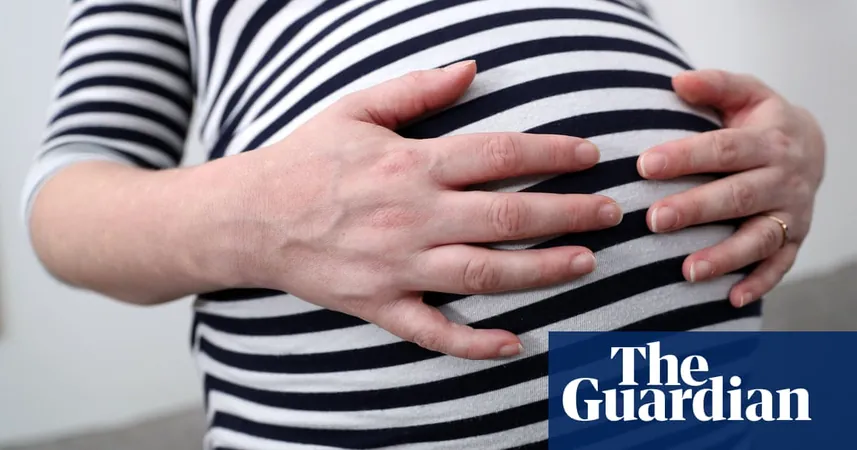
Surrogacy Under Scrutiny: New Study Reveals Surprising Health Risks for Gestational Carriers
2024-09-23
A groundbreaking study has unveiled that women who serve as pregnancy surrogates face significantly higher health risks compared to those who carry their own children. The findings are raising urgent questions about the safety and ethical implications of surrogacy, which has seen a surge in popularity over the past decade.
In England and Wales, the number of parental orders—where legal parentage is transferred from the surrogate to intended parents—skyrocketed from just 117 in 2011 to an astonishing 413 in 2020. However, the growing reliance on gestational carriers comes with hidden dangers, as recent research conducted in Canada calls attention to the increased health complications faced by these women.
Using extensive data from the Better Outcomes Registry & Network (BORN), the study analyzed 863,017 singleton births in Ontario between 2012 and 2021. Of these, merely 806 were born to surrogates, while the majority resulted from unassisted conception (846,124) or in vitro fertilization (IVF) (16,087). The comparison revealed alarming results: surrogates suffered from severe maternal complications at a rate of 7.8%, compared to just 2.3% for those who conceived naturally and 4.3% for women who underwent IVF.
Complications like severe postpartum hemorrhage and severe pre-eclampsia were more frequent among surrogates. Additionally, babies born to surrogates were at a higher risk of premature birth, although the incidence of severe neonatal issues remained statistically unchanged. Dr. Maria Velez from McGill University emphasized the importance of awareness among intended parents and gestational carriers about these potential health risks.
The implications extend beyond the women who act as surrogates; they affect families and healthcare providers who must navigate the complexities introduced by these complications. Dr. Velez noted the necessity for enhanced prenatal care and clearer guidelines for individuals considering surrogacy as an option.
Interestingly, while certain characteristics of surrogates—such as previous childbirth, living in lower-income areas, obesity, and high blood pressure—were noted, these did not fully account for the higher risk of complications. Remarkably, even after factoring in these conditions, the risk of severe postpartum hemorrhage was found to be 2.9 times greater for surrogates compared to the unassisted group, and their risk of preterm delivery was 1.79 times higher.
Professor Jackie Leach Scully of the University of New South Wales commented on the study’s limitations, highlighting the need for comprehensive research in order to better understand the unique risks faced by surrogates. The ethical questions around the surrogacy process are becoming increasingly pertinent, particularly regarding the potential exploitation of these women, who bear the physical burdens of pregnancy for others.
As discussions about reproductive technology and parental rights evolve, the glaring gap in knowledge about the health risks for surrogates raises critical concerns about the prioritization of women's health in medicine. The study underscores the need for a proactive approach to safeguarding the well-being of gestational carriers, ensuring that their health is not overshadowed by the focus on fetal outcomes.
In light of these findings, the conversation around surrogacy is bound to shift, demanding greater transparency and ethical considerations to protect the health and rights of women in these complex arrangements.

 Brasil (PT)
Brasil (PT)
 Canada (EN)
Canada (EN)
 Chile (ES)
Chile (ES)
 España (ES)
España (ES)
 France (FR)
France (FR)
 Hong Kong (EN)
Hong Kong (EN)
 Italia (IT)
Italia (IT)
 日本 (JA)
日本 (JA)
 Magyarország (HU)
Magyarország (HU)
 Norge (NO)
Norge (NO)
 Polska (PL)
Polska (PL)
 Schweiz (DE)
Schweiz (DE)
 Singapore (EN)
Singapore (EN)
 Sverige (SV)
Sverige (SV)
 Suomi (FI)
Suomi (FI)
 Türkiye (TR)
Türkiye (TR)